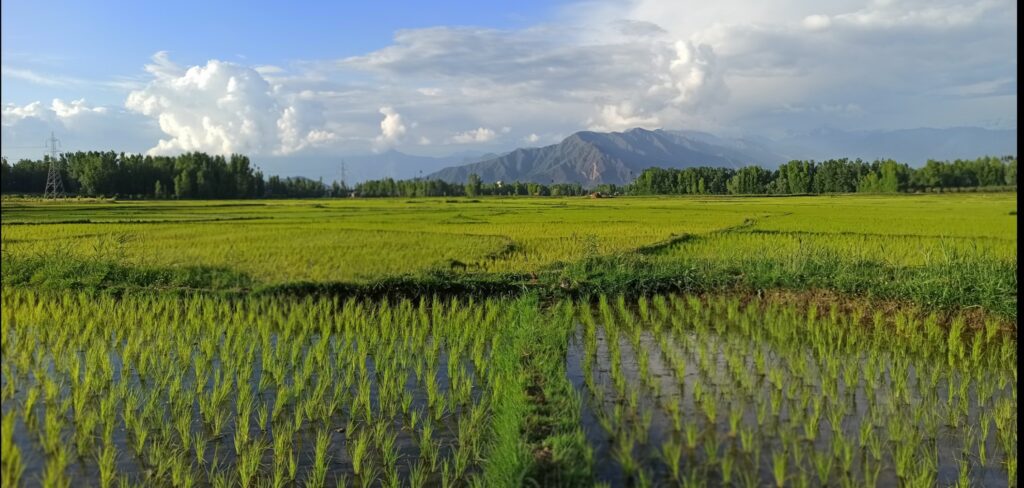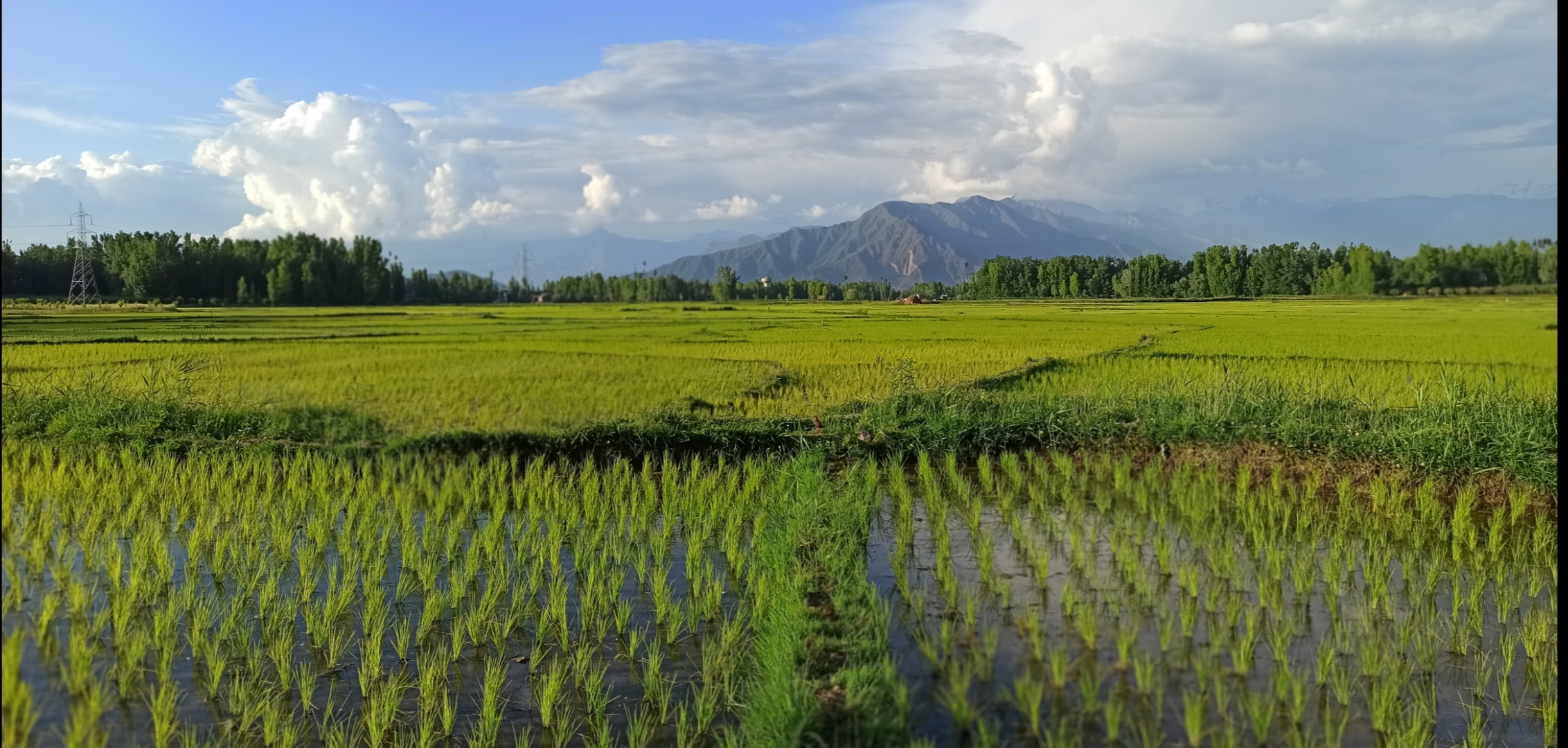From cutting-edge technology to sustainable practices, delve into the role of agriculture in shaping a sustainable and resilient future for all.
Dr. Mukhtar Ahmad
Agriculture, an ancient practice dating back to the cultivation of plants and rearing of animals for food, has undergone significant transformations in recent times. Today, the world grapples with complex issues such as population growth, climate change, urbanization, and environmental degradation, which have reshaped the role of agriculture. It now encompasses more than just food production; it plays a vital role in sustainable development, biodiversity preservation, climate change mitigation, empowering rural communities, and achieving global food security. This comprehensive article delves into the various dimensions of agriculture in the modern era. It sheds light on its critical contributions to shaping economies, nourishing populations, driving innovation, ensuring environmental sustainability, and tackling the interconnected challenges of the 21st century. The Changing Face of Agriculture
Feeding a Growing World
Amid a rapidly expanding global population, agriculture plays a crucial role in providing a sustainable and secure food supply. With an estimated 9.7 billion people projected to inhabit the planet by 2050, agricultural systems must adapt and intensify to meet the increasing demand for food. Advancements in technology, such as precision farming, genetic engineering, and smart irrigation, enable farmers to optimize crop yields, enhance productivity, and mitigate environmental impacts. Furthermore, the adoption of sustainable agricultural practices, including organic farming, agroforestry, and integrated pest management, helps preserve soil fertility, minimize water usage, reduce reliance on synthetic inputs, and ensure the long-term viability of food production systems.
Empowering Rural Communities
Agriculture remains a vital sector for economic development, particularly in developing countries where it contributes significantly to GDP and provides employment opportunities. Smallholder farmers, who constitute a large portion of the agricultural workforce, play a pivotal role in poverty reduction and rural livelihoods. By investing in agricultural infrastructure, improving access to markets, and facilitating the transfer of technology, governments and international organizations can foster inclusive growth, alleviate rural poverty, and bridge the urban-rural divide. Moreover, the agricultural sector serves as a catalyst for related industries such as agribusiness, food processing, and agricultural research, generating additional employment opportunities, promoting economic diversification, and stimulating rural economies.
Preserving the Environment and Natural Resources
In the face of climate change and environmental degradation, sustainable resource management has become a pressing concern. Agriculture, being intricately linked to land, water, and biodiversity, is at the forefront of sustainable development efforts. Conservation agriculture practices, such as crop rotation, cover cropping, and precision nutrient management, help preserve soil health, prevent erosion, and reduce greenhouse gas emissions. Water-efficient irrigation techniques, such as drip irrigation and micro-sprinklers, minimize water wastage and promote efficient water use. Moreover, the adoption of agroecological approaches, integrating ecological principles into agricultural systems, enhances biodiversity, supports natural pest control, improves soil quality, and promotes ecosystem resilience.

Agriculture as a Climate Solution
Agriculture is both vulnerable to the impacts of climate change and a significant contributor to greenhouse gas emissions. As global temperatures rise and extreme weather events become more frequent, the agricultural sector must adapt to changing conditions while mitigating its environmental footprint. Climate-smart agriculture, combining adaptation and mitigation strategies, offers solutions to these intertwined challenges. Practices such as agroforestry, conservation tillage, improved livestock management, and the use of renewable energy not only sequester carbon dioxide but also enhance ecosystem resilience, reduce soil erosion, increase water-use efficiency, and improve farmer livelihoods. Furthermore, integrating climate information and early-warning systems into agricultural practices enables farmers to make informed decisions, reduce crop losses, and enhance their resilience to climate-related risks.
Transforming Agriculture
The advent of digital technologies and innovative agricultural practices is revolutionizing the agricultural landscape. Precision farming techniques, utilizing sensors, drones, and satellite imagery, enable farmers to monitor crop health, optimize fertilizer application, and improve resource efficiency. The Internet of Things (IoT) facilitates real-time data collection, remote monitoring, and automated farm management, streamlining operations and reducing costs. Additionally, biotechnology and genetic engineering offer opportunities to develop crop varieties with enhanced nutritional value, improved tolerance to pests and diseases, and greater resilience to climate stress. Knowledge-sharing platforms and agricultural extension services empower farmers with knowledge and enable informed decision-making. Furthermore, innovative solutions such as vertical farming, hydroponics, and aquaponics offer alternatives to conventional farming methods, maximizing land utilization and minimizing resource consumption in urban areas.
The role of agriculture in contemporary times extends far beyond the mere production of food. It has become a powerful driver of sustainable development, a crucial factor in achieving global food security, and a catalyst for economic growth and rural development. By embracing sustainable practices, leveraging technological advancements, and fostering innovation, agriculture can tackle the multifaceted challenges of the 21st century. As we move forward, it is essential to recognize the interconnectedness of agriculture with issues such as poverty, climate change, and environmental conservation. Only through collaborative efforts, policy support, and investment can we harness the full potential of agriculture to nourish both people and the planet in a rapidly changing world. The evolving role of agriculture demands continual adaptation and transformative action to build a sustainable and resilient future for all.


Comments are closed.